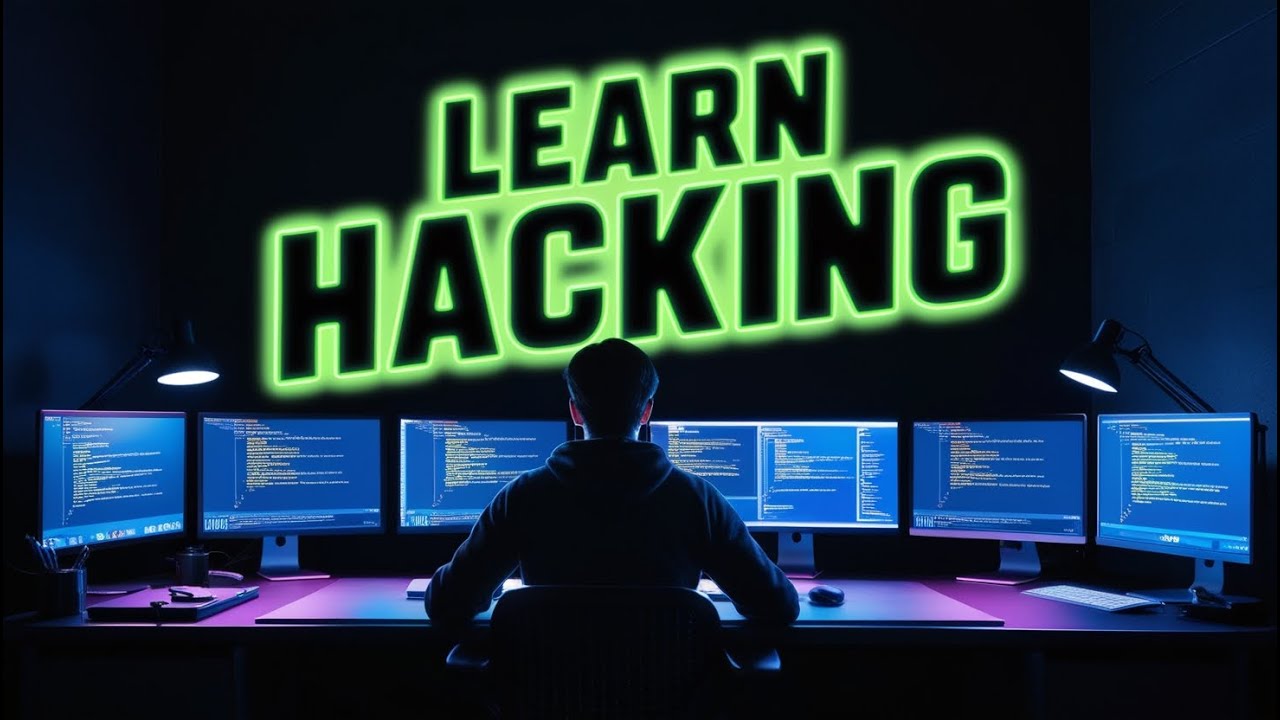Cyber Security Certificate Tier List – UPDATED (2023)
Summary
TLDRThe video offers an insightful evaluation of various cybersecurity certifications, highlighting their usefulness in landing jobs and the importance of practical knowledge over theoretical memorization. It emphasizes the value of CompTIA Security Plus and SANS training, the practicality of ethical hacking certifications like OSCP, and the limitations of vendor-specific and GRC-focused certificates. The speaker shares personal experiences and industry insights to guide viewers on their cybersecurity career path.
Takeaways
- 📚 The speaker's personal journey with cybersecurity certifications highlights the struggle of finding relevant and practical training early in their career.
- 🚀 CompTIA certificates are popular for beginners, offering vendor-neutral, foundational knowledge, but may involve memorization over practical skill development.
- 🔒 CompTIA Security Plus is considered a good introduction to cybersecurity, providing a broad understanding of the field.
- 📈 CompTIA Cybersecurity Analyst (SECA+) is more challenging and covers useful concepts for cybersecurity analysts, despite being theoretical.
- 🤔 The speaker questions the value of CompTIA PenTest+, comparing it to learning to drive by reading a book, and suggests it may not be worthwhile.
- 🌟 SANS Institute training is highly regarded in the cybersecurity industry, offering practical, up-to-date training from experienced professionals.
- 💡 ISAO certificates focus on governance, risk, and compliance (GRC), but may not provide practical training, and require significant experience.
- 🔥 Ethical hacking certificates like OSCP are favored for their practical approach, testing real-world ethical hacking skills rather than theoretical knowledge.
- 🛠️ Vendor-specific cybersecurity analyst certificates from Google, IBM, Microsoft, and Splunk aim to introduce cybersecurity basics to those without IT experience.
- ☁️ Cloud security certifications are in high demand, with specialized vendor certificates from AWS, Azure, and Google Cloud being particularly valuable.
- 🔑 The effectiveness of a single certification in securing a job depends on experience and the job market, but certifications can serve as a starting point for a learning journey in cybersecurity.
Q & A
What is the speaker's main goal in creating this video?
-The speaker's main goal is to provide an honest, no-nonsense rating of cybersecurity certifications and help viewers understand which certifications are useful for both learning and landing a job in the cybersecurity industry.
What was the speaker's experience with CompTIA A+ and CCNA certifications?
-The speaker found the process of learning for CompTIA A+ and CCNA certifications extremely boring and felt that the knowledge gained was irrelevant to ethical hacking and web application servers.
What does the speaker think about the CompTIA Security Plus certification?
-The speaker believes that CompTIA Security Plus is a good introductory certificate that teaches the general foundations of cybersecurity, making it a valuable starting point for beginners.
Why does the speaker criticize multiple-choice exams for cybersecurity certifications?
-The speaker criticizes multiple-choice exams because they believe that they encourage memorization and cramming of concepts rather than a deep understanding and practical application of cybersecurity topics.
What is the speaker's opinion on the CompTIA PenTest+ certification?
-The speaker does not believe that the CompTIA PenTest+ certification serves any practical purpose, as it is based on theoretical knowledge from a multiple-choice exam, which is insufficient for learning ethical hacking skills.
What are the advantages of SANS Institute training and certifications?
-The advantages of SANS Institute training and certifications include high-quality, up-to-date material, experienced instructors, practical components, and broad coverage of cybersecurity topics. They are also well-respected within the cybersecurity industry.
What is the main disadvantage of SANS training?
-The main disadvantage of SANS training is its high cost, which is typically around eight thousand dollars, targeting companies to pay for their employees' training.
What does the speaker think about the OSCP certification?
-The speaker highly regards the OSCP certification as it is fully practical and tests the candidate's ability to perform ethical hacking, rather than just passing multiple-choice exams.
Why does the speaker rate CISSP certification as a B?
-The speaker rates CISSP as a B because, while it is a well-known certification, it is more suited for cybersecurity managers and does not deeply cover specific domains. It also requires memorization of concepts, which may not reflect practical cybersecurity skills.
What is the speaker's view on vendor-specific cybersecurity analyst certificates like Google, IBM, Microsoft, and Splunk?
-The speaker views these vendor-specific certificates positively, especially for beginners with no IT experience. They provide a good introduction to cybersecurity and come with hands-on labs, which are beneficial for learning and confidence building.
How does the speaker feel about cloud security certificates?
-The speaker sees cloud security certificates, particularly those from major cloud providers like AWS, Azure, and Google Cloud, as highly valuable due to the increasing demand for cybersecurity professionals with cloud security knowledge.
Outlines

This section is available to paid users only. Please upgrade to access this part.
Upgrade NowMindmap

This section is available to paid users only. Please upgrade to access this part.
Upgrade NowKeywords

This section is available to paid users only. Please upgrade to access this part.
Upgrade NowHighlights

This section is available to paid users only. Please upgrade to access this part.
Upgrade NowTranscripts

This section is available to paid users only. Please upgrade to access this part.
Upgrade NowBrowse More Related Video

The FASTEST Way To Become A PRO Hacker (Simple Blueprint)

11 High Paying Certifications For Remote Jobs in 2024 (And How Much They Pay)

Kickstart Your Cybersecurity Career: Top 5 Certifications for Newbies

CERTIFICAÇÕES GRATUITAS EM SEGURANÇA DA INFORMAÇÃO

the hacker’s roadmap (how to get started in IT in 2023)

Como EU começaria em HACKING (CS) em 2024! 100% HONESTO
5.0 / 5 (0 votes)